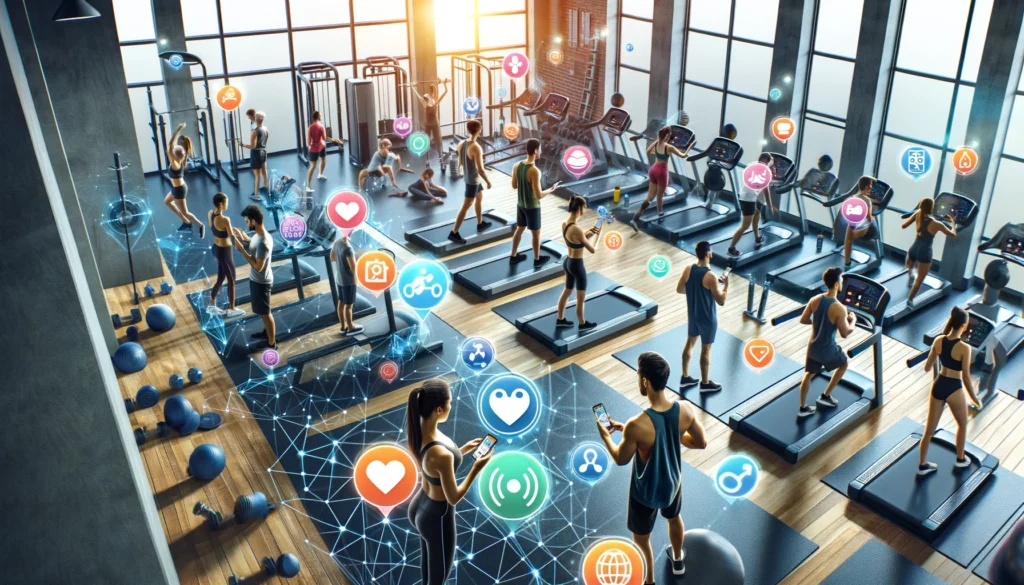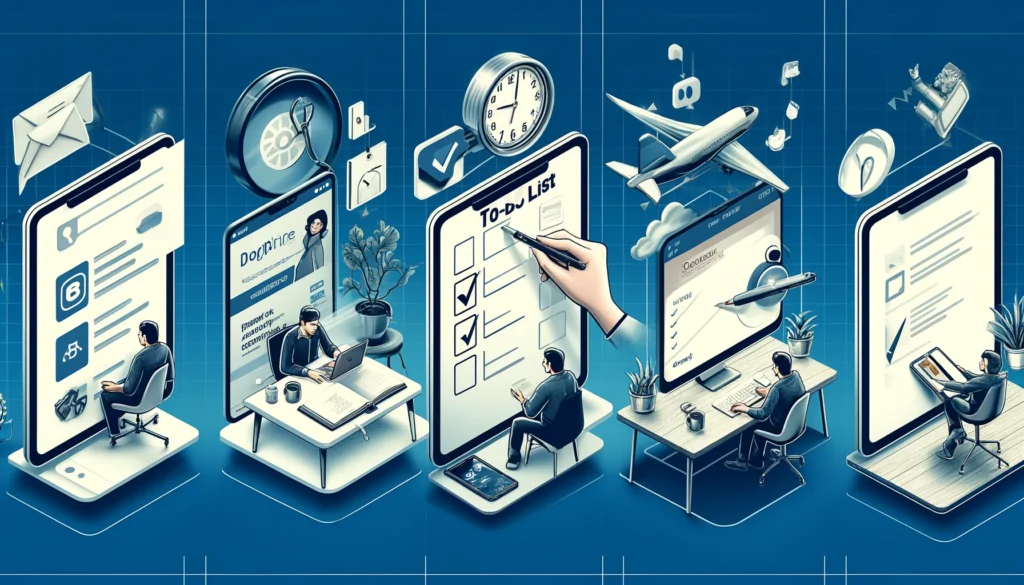In the age of smartphones, technology has transformed nearly every aspect of our lives, including how we manage our health and fitness. Health and fitness apps have become indispensable tools for millions of people, acting as personal trainers, nutritionists, and wellness coaches. These apps offer a range of features designed to help users achieve their health goals, whether it’s losing weight, building muscle, improving cardiovascular fitness, or simply maintaining a healthy lifestyle. In this article, we’ll explore the evolution of health and fitness apps, their key features, popular options, and the future of this booming industry.
The Evolution of Health and Fitness Apps
Early Beginnings
The first health and fitness apps were relatively simple, offering basic features like step counting and calorie tracking. As smartphones became more sophisticated, these apps evolved to include more advanced functionalities such as GPS tracking, heart rate monitoring, and integration with wearable devices.
Integration with Wearables
The introduction of wearable technology, such as Fitbit, Apple Watch, and Garmin devices, marked a significant milestone in the evolution of health and fitness apps. These wearables collect a wealth of data, including steps taken, calories burned, sleep patterns, and heart rate, which can be synced with apps to provide a comprehensive view of an individual’s health.
The Rise of AI and Personalization
Artificial intelligence (AI) and machine learning have further revolutionized health and fitness apps. These technologies enable personalized recommendations and adaptive workout plans based on user data and preferences. Apps can now analyze patterns, predict trends, and offer tailored advice, making fitness more accessible and effective.
Key Features of Health and Fitness Apps
Health and fitness apps come equipped with a variety of features designed to support users in their wellness journey. Here are some key features that make these apps essential:
1. Activity Tracking
Most health and fitness apps offer activity tracking, which monitors physical activities such as walking, running, cycling, and swimming. Users can set goals, track their progress, and receive feedback on their performance.
2. Workout Plans
Many apps provide structured workout plans designed by fitness experts. These plans cater to different fitness levels and goals, from beginner routines to advanced training programs. Users can follow video tutorials, read step-by-step instructions, and track their progress.
3. Nutrition and Diet Tracking
Proper nutrition is crucial for achieving fitness goals. Health and fitness apps often include features for tracking food intake, counting calories, and monitoring macronutrients. Some apps offer meal planning services and recipe suggestions based on dietary preferences and goals.
4. Personalized Coaching
Personalized coaching features use AI and machine learning to offer tailored advice and recommendations. These features adapt to the user’s progress and preferences, providing a customized fitness experience.
5. Social Connectivity
Social features allow users to connect with friends, join fitness communities, and participate in challenges. Sharing achievements and progress with others can provide motivation and accountability.
6. Integration with Wearables
Health and fitness apps often integrate with wearable devices, enhancing their functionality. This integration allows for seamless data synchronization, providing a comprehensive view of the user’s health and activity.
7. Progress Tracking and Analytics
Progress tracking features help users monitor their achievements and identify areas for improvement. Apps provide detailed analytics, including charts and graphs, to visualize progress over time.
8. Mindfulness and Relaxation
Many health and fitness apps include mindfulness and relaxation features, such as guided meditations, breathing exercises, and sleep tracking. These tools promote overall well-being and stress management.
Popular Health and Fitness Apps
Several health and fitness apps have gained popularity for their comprehensive features and user-friendly interfaces. Here are some of the leading options:
1. MyFitnessPal
Overview: MyFitnessPal is a widely-used app for tracking diet and exercise. It offers a vast database of foods and integrates with various fitness devices and apps.
Key Features:
- Calorie Counting: Track daily calorie intake and monitor macronutrients.
- Exercise Logging: Record workouts and sync with wearable devices.
- Community Support: Connect with friends and join community groups.
Impact: MyFitnessPal helps users achieve their weight loss and fitness goals by providing detailed insights into their diet and exercise habits.
2. Nike Training Club
Overview: Nike Training Club offers a variety of workouts led by professional trainers. The app caters to different fitness levels and goals, from strength training to yoga.
Key Features:
- Workout Library: Access to hundreds of free workouts.
- Personalized Plans: Customizable workout plans based on user goals.
- Expert Guidance: Workouts designed and led by Nike trainers.
Impact: Nike Training Club provides users with high-quality, professional workouts that can be done anywhere, making fitness accessible and convenient.
3. Strava
Overview: Strava is a social fitness app designed for runners and cyclists. It tracks activities using GPS and allows users to share their progress with a community.
Key Features:
- Activity Tracking: Monitor running, cycling, and other activities.
- Social Features: Connect with friends, join clubs, and participate in challenges.
- Performance Analytics: Detailed performance data and progress tracking.
Impact: Strava combines fitness tracking with social connectivity, motivating users to stay active and engage with a supportive community.
4. Fitbit
Overview: Fitbit offers a comprehensive health and fitness platform that integrates with its range of wearable devices. The app tracks various health metrics and provides personalized insights.
Key Features:
- Activity and Sleep Tracking: Monitor daily activity, exercise, and sleep patterns.
- Health Metrics: Track heart rate, weight, and more.
- Guided Programs: Access to personalized workout and wellness programs.
Impact: Fitbit empowers users to take control of their health by providing detailed insights and personalized recommendations based on data collected from wearables.
5. Headspace
Overview: Headspace is a mindfulness and meditation app that helps users manage stress, improve focus, and enhance overall well-being.
Key Features:
- Guided Meditations: A variety of meditation sessions for different needs.
- Sleep Tools: Relaxation exercises and sleep sounds to improve sleep quality.
- Mindfulness Exercises: Techniques to reduce stress and enhance mental health.
Impact: Headspace promotes mental well-being through mindfulness and meditation, complementing physical fitness efforts.
6. 7 Minute Workout
Overview: The 7 Minute Workout app offers quick, high-intensity workouts designed to fit into a busy schedule. The workouts are based on scientific research and require no equipment.
Key Features:
- Quick Workouts: Short, effective workouts that can be done anywhere.
- Progress Tracking: Monitor workout history and achievements.
- Customizable Routines: Create personalized workout plans.
Impact: The 7 Minute Workout app makes it easy for users to incorporate fitness into their daily routine, regardless of time constraints.
7. Aaptiv
Overview: Aaptiv provides audio-based fitness classes led by certified trainers. The app covers a wide range of activities, including running, strength training, and yoga.
Key Features:
- Audio Workouts: Guided workouts with motivating music and trainer instructions.
- Variety of Classes: Access to thousands of workouts across different categories.
- Personalized Plans: Customizable fitness plans based on user goals.
Impact: Aaptiv offers a unique audio-based fitness experience, allowing users to enjoy expert-guided workouts without the need to watch a screen.
The Impact of Health and Fitness Apps
Increased Accessibility
Health and fitness apps have democratized access to fitness and wellness resources. Regardless of location, income, or fitness level, anyone with a smartphone can access high-quality workout plans, nutrition advice, and wellness tools. This accessibility has made it easier for people to prioritize their health and achieve their fitness goals.
Personalized Fitness
The use of AI and machine learning in health and fitness apps allows for personalized fitness experiences. Apps can adapt workout plans and dietary recommendations based on individual progress and preferences, providing a customized approach that maximizes results.
Motivation and Accountability
Social features and community support play a crucial role in motivating users and holding them accountable. Sharing progress with friends, joining challenges, and receiving encouragement from a community can significantly enhance motivation and adherence to fitness routines.
Comprehensive Health Management
Integration with wearable devices and other health apps provides a holistic view of an individual’s health. Users can monitor various health metrics, including activity, sleep, heart rate, and nutrition, in one place. This comprehensive approach enables users to make informed decisions about their health and well-being.
Convenience and Flexibility
Health and fitness apps offer unparalleled convenience and flexibility. Users can work out anytime, anywhere, and choose from a wide range of activities that fit their schedule and preferences. This flexibility makes it easier for people to maintain a consistent fitness routine.
The Future of Health and Fitness Apps
Advanced Personalization
The future of health and fitness apps will see even more advanced personalization, driven by AI and machine learning. These technologies will provide deeper insights into individual health patterns and deliver highly tailored recommendations for exercise, nutrition, and wellness.
Integration with Advanced Wearables
As wearable technology continues to evolve, health and fitness apps will integrate with more advanced devices that monitor a broader range of health metrics. This integration will provide users with more comprehensive data and insights, enhancing the effectiveness of their fitness programs.
Virtual and Augmented Reality
Virtual and augmented reality technologies will create immersive fitness experiences. Virtual reality workouts can transport users to different environments, making exercise more engaging and enjoyable. Augmented reality can provide real-time feedback and guidance during workouts.
Telehealth and Remote Coaching
The integration of telehealth services with health and fitness apps will allow users to access professional coaching and medical advice remotely. Virtual consultations with fitness trainers, nutritionists, and healthcare providers will become more common, providing personalized support and guidance.
Gamification and Social Features
Gamification and social features will continue to play a significant role in health and fitness apps. Interactive challenges, rewards, and leaderboards will keep users motivated and engaged. Enhanced social connectivity will facilitate more robust community support and accountability.
Focus on Mental Health and Holistic Wellness
Future health and fitness apps will place a greater emphasis on mental health and holistic wellness. Mindfulness, stress management, and mental resilience will be integrated into fitness programs, recognizing the interconnectedness of physical and mental well-being.
Conclusion
Health and fitness apps have revolutionized the way we approach our health and wellness. They provide accessible, personalized, and comprehensive tools that empower users to take control of their fitness journey. From activity tracking and workout plans to nutrition advice and mindfulness exercises, these apps offer a wide range of features that cater to diverse needs and goals.
As technology continues to advance, the future of health and fitness apps looks promising. Innovations in AI, wearables, virtual reality, and telehealth will further enhance the capabilities of these apps, providing even more personalized and effective fitness solutions. The integration of mental health and holistic wellness will ensure that users can achieve balanced and sustainable health.
In this digital age, health and fitness apps are more than just tools; they are essential companions in our pursuit of a healthy and fulfilling life. By embracing these technologies, we can make informed decisions, stay motivated, and achieve our fitness goals with greater ease and efficiency. So, whether you’re a fitness enthusiast or just starting your wellness journey, explore the world of health and fitness apps and discover how they can transform your approach to health and fitness.


